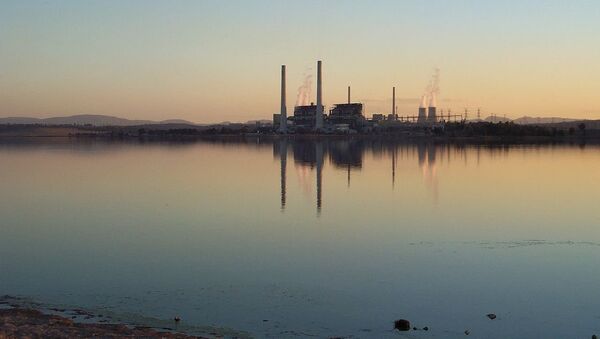Kristian Rouz — The Australian government is considering imposing caps on energy prices for retail customers as power prices have skyrocketed over the last several months. This has led to a massive erosion of trust in the nation's largest energy companies. Confidence in the industry is now even lower than in the banking system and in telecommunication services providers.
READ MORE: Australian Students Face Uproar Over Donning KKK Robes, 'Racist' Blackface
Australian Energy Minister Josh Frydenberg said he would impose retail price controls on private-sector energy companies unless they take steps to lower electricity costs for their customers. The government is concerned that rising power prices could impair consumer sentiment and purchasing power, which could, in turn, cost Australia's GDP several percentage pints.
"We need to see prices come down more," Frydenberg stressed. "Prices have moved, but certainly it's not enough. We want to see prices come down more and we're confident that will be the case."
The rise in prices happened after Australian energy companies reported a massive plunge in wholesale charges, which declined by roughly 30 percent year-on-year. In a Sky News interview, Frydenberg said the energy providers are currently ‘on notice', as the government is awaiting a report from the anti-monopoly commission before it makes a decision whether or not to intervene.
Meanwhile, most Australians don't believe the energy companies had well-justified economic reasons to hike their retail customer rates, and some see the increase in prices as a deliberate move to enhance earnings.
READ MORE: Secret Inquiry: Australia's SAS Soldiers Questioned Over Alleged War Crimes
This according to a report from the Australian Energy Market Commission, which also found that only 25 percent of consumers believe the current market situation is working in their favor, from a longer-term perspective.
The majority of Australians say they find their electricity bills and energy plans confusing, resulting in wide-spread suspicion that power companies may be overcharging their customers. The Commission's report also found that many Australians had moved to install solar panels to reduce their reliance on the grid, and lower their exposure to ‘insane' power costs.
"If you are an Energy Australia customer in Brisbane and you run a small business, like a cafe or a hairdresser, that would be a saving of around A$470 a year, if you are a household it is about A$80 a year," Frydenberg said. "It is certainly not enough, we want to see prices come down more and we are confident that will be the case."
Australia's electricity turmoil is a lasting issue, and many consumers doubt it will be resolved anytime soon. Last year, Prime Minister Malcolm Turnbull urged the nation's largest power suppliers — AGL, Energy Australia, and Origin Energy — to provide more transparent pricing information to their customers. However, the situation has continued to deteriorate.
Turnbull's initiative focused on the domestic gas supply, according to Frydenberg, who also criticized Australian companies for exporting energy rather than selling it at home. In particular, back in 2015, AGL was selling natural gas to Gladstone LNG, which later exported it to Asia.
In order to make up for the mishap that caused the Prime Minister's intervention, AGL vowed to build an LNG import terminal in Melbourne, but the bad taste of that deal remained.
"It was a terrible decision, it short-changed its customers," Frydenberg said. "It was short-sighted, it was irresponsible and AGL has a lot of explaining to do to its customers. Now they're looking to build expensive import terminals to provide exactly that same service."
Frydenberg also criticized energy providers for not providing savings plans to their long-term customers, unless they threatened to switch providers — if their location allowed for that. The Energy Minister slammed energy companies, saying they are effectively charging their customers a ‘loyalty tax', instead of encouraging them to stay with various savings offers.
"The companies have not served their customers well; they have a lot of explaining to do and they do need to lift their game," Frydenberg said.
While the Turnbull cabinet in weighing potential intervention options, the energy crisis in Australia continues — despite the country being one of the world's largest producers and exporters of coal and natural gas.


